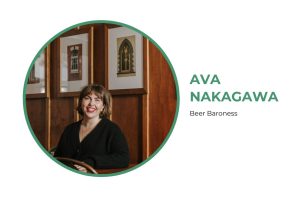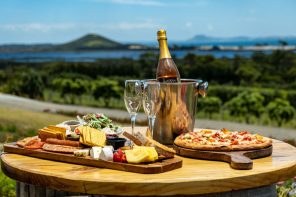Research from the National Restaurant Association in the USA found that up to 70 percent of diners would dine out more if menu prices were lowered during off-peak times. The idea is nothing groundbreaking – pubs have been offering ‘happy hour’ drinks specials for as long as they’ve existed. The towns of South Florida, an area which has made its name as a state-wide retirement village, have offered earlybird specials to their elderly clientele for decades. Just last year, iconic London restaurant Bob Bob Ricard launched a dynamic pricing model, where guests could enjoy a 25 percent discount for dining in ‘off-peak’ times and a 15 percent discount for dining in ‘mid-peak’ hours.
“When they come in on off-peak days, they're not necessarily looking to spend less,” said restaurant owner Leonid Shutov at the time. “Our average checks have not changed in any meaningful way on those days because the customers are rewarding themselves with more special things — with a bit of caviar, with a little bit more Champagne than they may have had otherwise.”
In New Zealand, Queenstown-based app First Table has had a firm hold on the earlybird dining market since first launching in 2014. Founder Mat Weir came up with the concept after observing that restaurants often had slow starts to evenings – a self-perpetuating problem, as diners are more reluctant to go into an empty restaurant.
First Table recently celebrated its fourth birthday by launching into Indonesia, adding to its stable of 1000 restaurants across 50 cities and with a planned expansion into North America on the horizon. The concept has been such a success that competitors have begun to emerge. Online booking forum Restaurant Hub launched its own Early Bird service less than a month ago and has been met with similar success.
First Table and Restaurant Hub work in almost identical fashion. Diners can sign up for free but pay a $10 fee when booking the restaurant’s first table of the evening, lunch or breakfast time. They are rewarded with 50 percent off their meal cost. Drinks are not included in the discount, allowing restaurants to regain some of the margins they would have lost, and the restaurant has control over the days and times that the offer is available.
The concept seems simple, but a lot of work goes into making sure that the arrangement is beneficial for both the restaurant and the customer.
“It’s quite ironic, really,” said First Table territory manager Cameron Steele. “People look at it and see how good a deal it is for the consumer, but in truth, it’s the restaurants who are our customers. We’re focused on helping restaurants grow their client base and online reputation. Everybody knows that an empty table is a lost opportunity, and for 95 percent of restaurants start of service has plenty of those.”
Statistics from First Table show that 75 percent of diners using the app will be dining at the restaurant for the first time. Customers are encouraged to leave reviews, raising the profile of the venue.
“Early dining is always a quiet time of night so it’s great being able to create some real atmosphere in the restaurant at an early stage of the evening,” said Hayden Davison, restaurant manager at Jervois Steak House in Queenstown. “It’s also a great opportunity for our staff to show diners what we do here and add a personal touch to their experience. We get a lot of return customers as a result.”
“I was sceptical about it at first,” admitted Leigh Stock, general manager at McGavins Restaurant in Dunedin. “But people attract people, and by ensuring you have guests in your restaurant early it’s amazing the incremental business you can make from walk-in guests who see other guests enjoying themselves.”
For Mark Gregory, managing director of Restaurant Hub, early bird dining is the natural progression in a restaurant’s business model.
“The old model is broken,” he said. “Restaurateurs can’t rely on people to walk through their doors anymore.”






